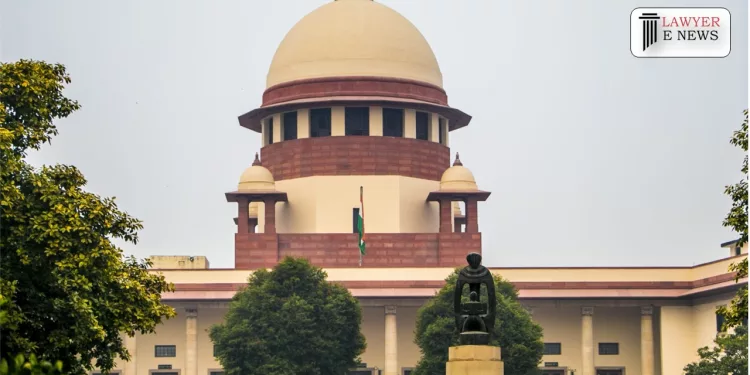In the Realm of Doubts and Discrepancies, Innocence Prevails: Supreme Court Acquits In Child Murder Case

In a landmark judgment, the Supreme Court today overturned the High Court’s conviction of Kalinga in the 2002 murder case of a child, citing significant inconsistencies in circumstantial evidence and the unreliability of an extra-judicial confession.
The apex court critically examined the evidentiary value of circumstantial evidence and extra-judicial confessions in criminal cases, emphasizing the necessity of a coherent and conclusive chain of circumstances to establish guilt beyond a reasonable doubt.
The case involved the mysterious death of 2.5-year-old Hrithik in 2002. Kalinga, the appellant, faced conviction by the High Court based on an extra-judicial confession and circumstantial evidence, despite being acquitted by the Trial Court. The Supreme Court was tasked with evaluating the consistency and reliability of the confession and the overall circumstantial evidence.
Extra-Judicial Confession: The court noted significant discrepancies in the testimony of PW-1, the father of the deceased, concerning the confession. The absence of key witnesses during the confession raised doubts about its existence and credibility.
Circumstantial Evidence: The apex court identified several discrepancies in the chain of circumstances, including uncertainties about the identity of the deceased’s body, arrest procedures, and the theory of the body’s recovery. These inconsistencies led the court to deem the circumstantial evidence insufficient to conclusively establish guilt.
Reversal of Acquittal Standards: Highlighting the principles governing the reversal of acquittals, the Supreme Court criticized the High Court’s approach in re-appreciating evidence without identifying any perversity or illegality in the Trial Court’s order, reaffirming the reinforced presumption of innocence after acquittal.
Decision: Overruling the High Court’s judgment and reinstating the Trial Court’s acquittal, the Supreme Court acquitted Kalinga of all charges. The judgment underscored the importance of resolving doubts in favor of the accused and adhering to the principle of reasonable doubt in criminal jurisprudence.
Date of Decision: February 20, 2024
Kalinga @ Kushal Vs. State of Karnataka by Police Inspector Hubli






